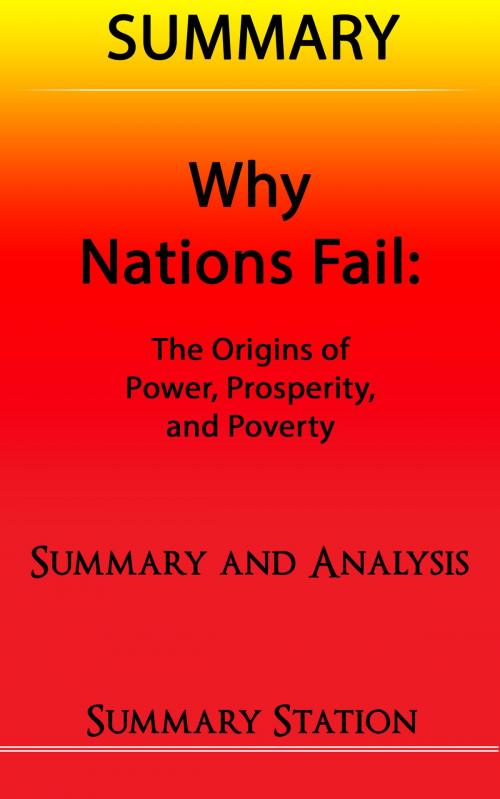Why Nations Fail: The Origins of Power, Prosperity, and Poverty | Summary
Nonfiction, Social & Cultural Studies, Political Science, International, Foreign Legal Systems| Author: | Summary Station | ISBN: | 9781310648847 |
| Publisher: | Summary Station | Publication: | March 24, 2016 |
| Imprint: | Smashwords Edition | Language: | English |
| Author: | Summary Station |
| ISBN: | 9781310648847 |
| Publisher: | Summary Station |
| Publication: | March 24, 2016 |
| Imprint: | Smashwords Edition |
| Language: | English |
Acemoglu's theory and explanation of the differences in global prosperity are as enlightening as they are entertaining. He manages to make the puzzling concept dead simple to understand because the book, rather than a lengthy lecture explaining the theory, is a series of examples supporting it. After the first chapter, you will fundamentally understand the concept and theory behind this book, and each subsequent chapter will support the theory in fascinating ways.
Take the opening example for instance: comparing a city, Nogales, that was literally cut in half by the US-Mexico border. So many history books and experts like to chalk up the world's current state to fate, such as in differences in climate or geographical location. Yet here is a shining example of how none of those things matter. At one point, this was just one city, and now it has become two cities so different, you'd think their shared name and location were some sort of joke.
Acemoglu's theory and explanation of the differences in global prosperity are as enlightening as they are entertaining. He manages to make the puzzling concept dead simple to understand because the book, rather than a lengthy lecture explaining the theory, is a series of examples supporting it. After the first chapter, you will fundamentally understand the concept and theory behind this book, and each subsequent chapter will support the theory in fascinating ways.
Take the opening example for instance: comparing a city, Nogales, that was literally cut in half by the US-Mexico border. So many history books and experts like to chalk up the world's current state to fate, such as in differences in climate or geographical location. Yet here is a shining example of how none of those things matter. At one point, this was just one city, and now it has become two cities so different, you'd think their shared name and location were some sort of joke.















